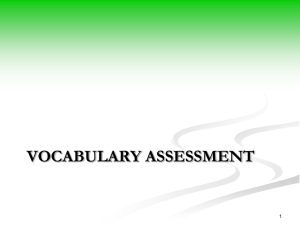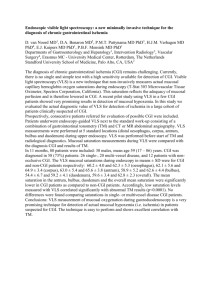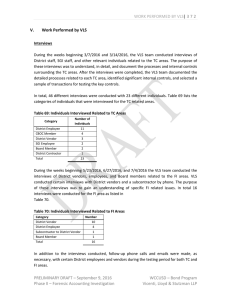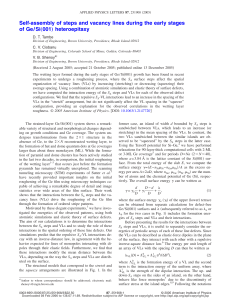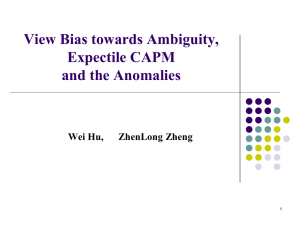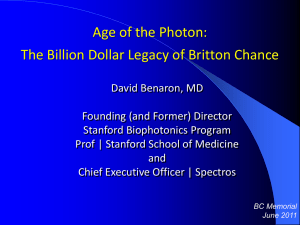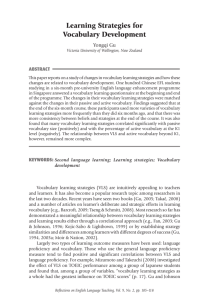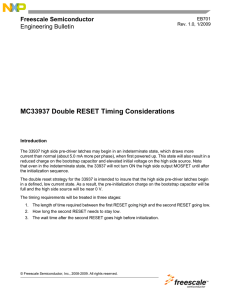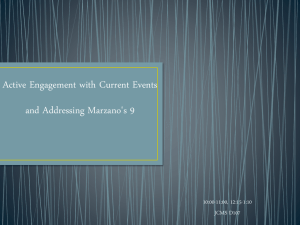INTERNATIONAL BILINGUAL CONFERENCE
advertisement
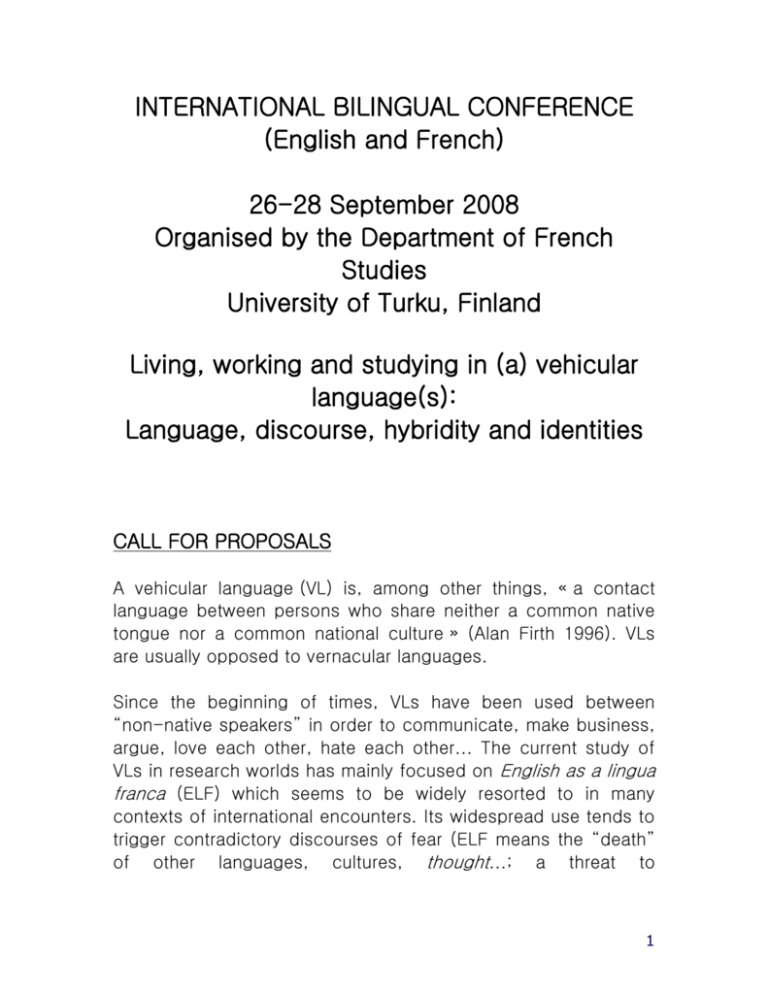
INTERNATIONAL BILINGUAL CONFERENCE (English and French) 26-28 September 2008 Organised by the Department of French Studies University of Turku, Finland Living, working and studying in (a) vehicular language(s): Language, discourse, hybridity and identities CALL FOR PROPOSALS A vehicular language (VL) is, among other things, « a contact language between persons who share neither a common native tongue nor a common national culture » (Alan Firth 1996). VLs are usually opposed to vernacular languages. Since the beginning of times, VLs have been used between “non-native speakers” in order to communicate, make business, argue, love each other, hate each other... The current study of VLs in research worlds has mainly focused on English as a lingua franca (ELF) which seems to be widely resorted to in many contexts of international encounters. Its widespread use tends to trigger contradictory discourses of fear (ELF means the “death” of other languages, cultures, thought...; a threat to 1 multilingualism) and enthusiasm (ELF allows millions of people to communicate peacefully worldwide). But what about other VLs? This conference will distinguish itself from the current rich study of ELF by looking at other languages that serve as VL (without excluding it) and find some answers to questions such as: What is known of them? What impacts do they have on relationships, intercultural communication, discourse and identity, etc.? Aims of the conference: This unique bilingual conference (English and French) will provide a forum for discussing vehicular languages. The conference has three main aims: 1. To link emergent theoretical and research approaches to the use of VL in under-researched contexts such as close personal relations (binational couples/friends communicating in a VL/ in VLs) and daily life; studying in VLs (abroad or in one’s own country); working in VLs (idem). 2. To explore the impacts of the use of VLs on representations and creations of self and otherness of VL users themselves, and of those who “witness” this use, in different geographical, professional and social contexts. 3. To call for more research on VL other than English by sharing theoretical and research achievements on the latter. The overarching philosophy of the conference is that VLs are neither “impure”, nor signs of “lost identities”. The main focuses are discourse and language forms. 2 Research and theoretical papers are invited on any of the following themes (among others): - Easiness/Problems involved in VL communication; - Code-switching/code-mixing in VL communication (cf. “verbal jugglery” Galisson 1991); - Use of several VLs in communication (plurilingualism); - Rhetorics on VL (rejection/adoration/contradictory attitudes in political, official discourses); - Identity games/claims and VL; - Representations and stereotypes on VLS: - Representations of VL users on the use of VL (co/construction of identities); - Representations of non-VL users on the use of VLs; - Representations of « native-speakers » on the use of their language as a VL; - Representations of VLs in cinema, literature, media...; - Intercultural communication and VLs. The contexts of use under scrutiny will be living, working and studying. These can include (among others): the use of VL(s) in close relationships (friendship, couples, etc.); in daily encounters of strangers; in tourism; in business (shopping, multinational companies); on the streets; in classrooms; in New Technology... The conference is bilingual (English and French) but any vehicular language can be dealt with. Plenary speakers: Louis-Jean Calvet, Professor, University of Provence (AixMarseille 1), France José del Valle, Professor, Hispanic Linguistics, The graduate Centre, CUNY, USA The legitimacy of Spanish: vehicular language or sign of identity? 3 Alan Firth, Senior Lecturer in Applied Linguistics, School of Education, Communication and Language Sciences, Newcastle university, UK Marie-Anne Paveau, Professor in French linguistics, University of Paris 13 - Paris-Nord (Villetaneuse), France Sue Wright, Professor of Languages and Politics, School of Languages and Area Studies, University of Portsmouth, UK Voices from the French-speaking world Scientific committee : Ainhoa de Federico, Institute of Anthropology and Sociology, University of Lille 1, France Fred Dervin, Department of French Studies, University of Turku, Finland Olga Galatanu, Department of linguistics and French as a Foreign language, University of Nantes, France Aino Niklas Salminen, Department of linguistics, University of Provence, France Abdel Latif Sellami, College of Arts & Sciences, Zayed University, Dubai, U.A.E Eija Suomela-Salmi, Department of French Studies, University of Turku, Finland. Contacts: Tel: +358 (0) 23336041 Fax: +358 (0) 2 3336560 E-mail: freder@utu.fi Snail-mail: VL, Department of French Studies, Henrikinkatu 2, 20014 Turun Yliopisto, Finland. 4

